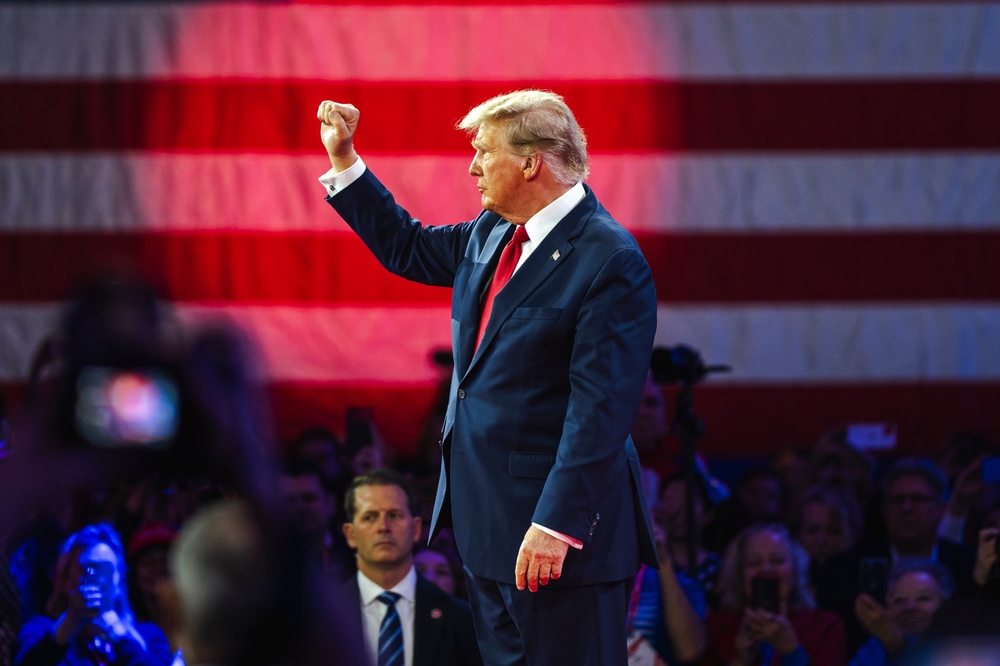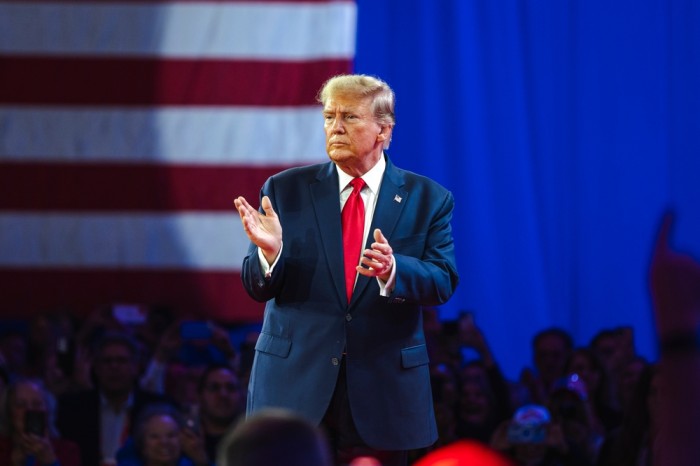Why Trump’s tariffs are not what you think

As the world re-enters power politics experts unpack the pros and cons of the new US presidency.
Civilisations routinely put structures in place to limit leaders’ power. History shows this has limited success. While US President Donald Trump rattles financial markets in the short term with erratic executive orders, some experts believe his actions may have positive long-term consequences.
After all, US leaders with populist agendas – think seventh US president Andrew Jackson – have reshaped the nation’s institutions to consolidate power in the past.
University of Sydney US expert, Dr Stuart Rollo, says populists are appealing because they rise when the status quo no longer serves people’s interests.
“We treat populism as a dirty word when it shouldn’t be. Politics should be appealing and accessible and if ‘good’ politicians don’t pay attention to what appeals to normal people, others will, at our collective peril,” says Rollo.
What’s clear is Trump has learned from the pushback he experienced from the civil service, courts, Congress and his own party in his first term.
“Trump’s team anticipated resistance and undertook a shock and awe campaign to break through checks and balances that hindered them last time. This strategy appears to be working,” says Rollo.
University of NSW associate professor Mark Humphrey-Jenner notes while concerns about the justice system being weaponised have some legitimacy, Trump is unlikely to create major damage to the US during his final term.
“Stopping higher corporate and personal tax and halting a wealth tax shows he is more in tune with individual liberty than the Democrats,” says Humphrey-Jenner.
A change in course
While international trade liberalisation has been on the march for a number of decades, Trump’s tariffs and trade policies echo a return to 19th-century protectionism. This time around, global markets operate very differently.
“Much of the logic of US 19th century tariffs lay in protecting the development of domestic industries from more efficient European competitors, recognising the tariffs were a temporary measure that would eventually prove unnecessary as American industry became more efficient and competitive. This is a standard pattern of industrial development that has happened across the industrialised world. Trump’s current wave of tariffs will not work like this,” says Rollo.
What’s different this time is the US is not trying to become more efficient.
“It is erecting tariffs to protect its industrial base as a matter of national security, not economic competitiveness. This will have profound implications for America’s international standing and how it uses its weight to shape the global economy,” says Rollo, who says it’s an attempt to coerce the world into investing into non-competitive US industries to subsidise American reindustrialisation.
This has cannibalised the liberal international economic order the US has built over the last century.
In a statement, former prime minister and FINSIA member the Hon Paul Keating acknowledged recent US tariff announcements change geo-economic settings.
“Trump’s new economic fortress America, by its design, winds off its principal economic and strategic partner, Europe, leaving China as the sole promoter of free and open international trade,” he said.
Keating believes the tariff announcement represents the death knell for NATO and this has the potential to inform allied relationships with America, including ANZUS.
“If NATO, America’s principal strategic alliance, is expendable, what credible rationale could underpin US fidelity to ANZUS and with it, to Australia?
Australia’s clutch of Austral-Americans, that phalanx of American acolytes, must have choked on their breakfasts, as Donald Trump laid out his blitzkrieg on globalisation, with all its implications for the rupture of cooperation and goodwill among nations,” he said.
Rollo believes Trump wants to reshape the American empire into a simple transactional set of bilateral arrangements, within which the US can exert maximum leverage and extract maximal concessions.
“The US is likely to be harsh with weak and dependent nations and seek to make deals with the strong. I believe the Trump administration is eager to wind things up in Ukraine and Gaza to exert maximum strategic and economic pressure on China, the only peer competitor to the US. From the American perspective, it is more advantageous to confront and come to terms with China now than in five or ten years,” he says.
Humphery-Jenner acknowledges new tariffs raise issues in relation to the US’s relationship with the rest of the world. “The US is right to argue some other countries have engaged in lopsided protectionist policies, while hypocritically decrying the US for doing the same.”
Examples include jurisdictions that don’t enforce IP rights or encourage IP theft, that heavily subsidise domestic producers or that impose supernational regulations on US tech firms. This has led to a more mercenary approach from the US.
“The tariffs suggest a troubling view governments should dictate how much and where private companies can sell goods,” says Humphery-Jenner, noting the way the tariffs were communication also appeared unfriendly and ruffled feathers.
“President Trump argues he needed to act boldly to disrupt the status quo and, without such a disruptive move, negotiations would be protracted and ineffective,” says Humphery-Jenner.
For now, Australia is not squarely in the US government’s sights. But that could change at any moment.
Related News & Resources



